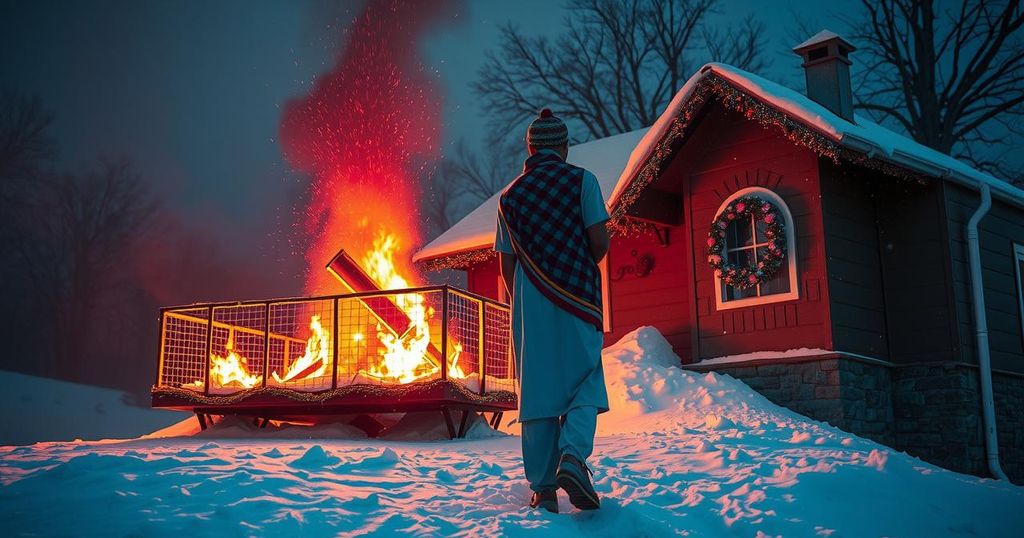Christmas Attacks Result in 46 Fatalities in Nigeria and DRC

In the days leading to and including Christmas, attacks in Nigeria and the DRC resulted in 46 deaths. In Nigeria, Fulani militants targeted returning congregants, killing eleven during Christmas celebrations, while earlier, fourteen were murdered in Plateau State. Meanwhile, the ADF killed at least twenty-one in the DRC, indicating a trend of violence against Christians during Christmas. Calls for prayers and international support intensify as communities seek protection from such extremist threats.
In the lead-up to Christmas, a wave of violence resulted in the deaths of 46 individuals in Nigeria and the Democratic Republic of Congo (DRC). These tragic events have marred a season typically marked by joy and celebration for Christian communities in sub-Saharan Africa. In a brutal attack in Nigeria’s Benue State, Fulani militants targeted returning congregants, killing eleven individuals while many were preparing for Christmas celebrations. Reports indicate that armed herdsmen coordinated their assault from multiple directions, utilizing firearms indiscriminately against unsuspecting families.
Prior to this attack, on December 22, armed assailants struck the village of Gidan Ado in Plateau State, claiming the lives of fourteen individuals of varying ages, from one to fifty-two years old, during late-night hours. Local spokesperson Jo Newhouse from Open Doors expressed grave concern for the safety of vulnerable Christian populations in these regions, as many have already experienced traumatic attacks in preceding years. She urged the Nigerian security forces to intensify their efforts to protect these communities from extremist threats.
Meanwhile, in the DRC’s North Kivu province, the suspected Islamic militant group, ADF, was responsible for the deaths of at least twenty-one individuals during the same timeframe. Initial reports indicated that eighteen civilians were murdered in the village of Robinet, followed by further discoveries of three more victims on Christmas Day. Although it remains unclear if all victims were indeed Christians, the history of targeted assaults by ADF against Christian populations suggests a likelihood that some victims were selected due to their faith.
Following these harrowing incidents, there is a clarion call for prayers supporting affected communities and advocating for safety among vulnerable believers in the region. Christian leaders across sub-Saharan Africa have urged global solidarity against escalating violent persecution. They have also initiated the global Arise Africa petition to demand justice, protection, and restoration for those impacted by these tragedies.
The ongoing violence against Christian communities in sub-Saharan Africa highlights a troubling trend of persecution, particularly during significant religious periods such as Christmas. Extremist groups, notably the Fulani militants in Nigeria and the ADF in the DRC, have increasingly targeted these communities as they seek to impose their ideologies. The timing of such attacks raises concerns about the vulnerability of Christian populations, particularly during festive seasons that symbolize peace and goodwill. Instances of violent assaults against these communities have propelled organizations and local leaders to advocate for safety, justice, and awareness within the global church.
The recent attacks on Christian communities during the Christmas season in Nigeria and DRC have resulted in significant loss of life and highlight the ongoing threats faced by believers in these regions. The violence underscores the need for targeted security measures to protect vulnerable populations amid rising extremist violence. Furthermore, international support and prayers for the affected communities are crucial in the fight against persecution and in promoting peace. Organizations advocate for global awareness and action against these atrocities, urging the church to stand united in the effort to ensure safety and justice.
Original Source: www.opendoorsuk.org








